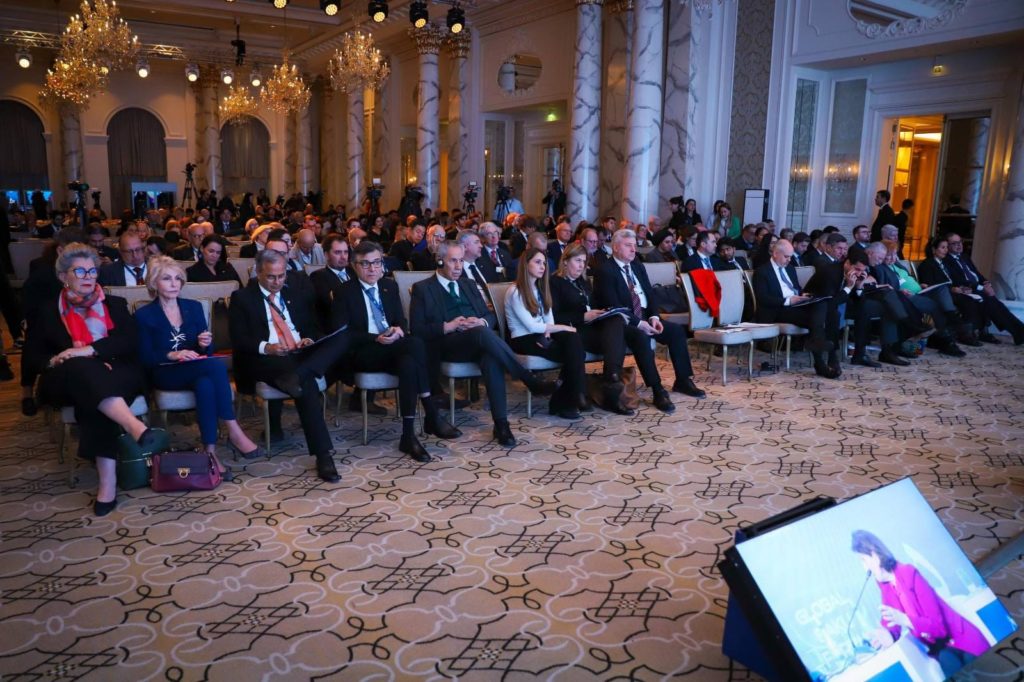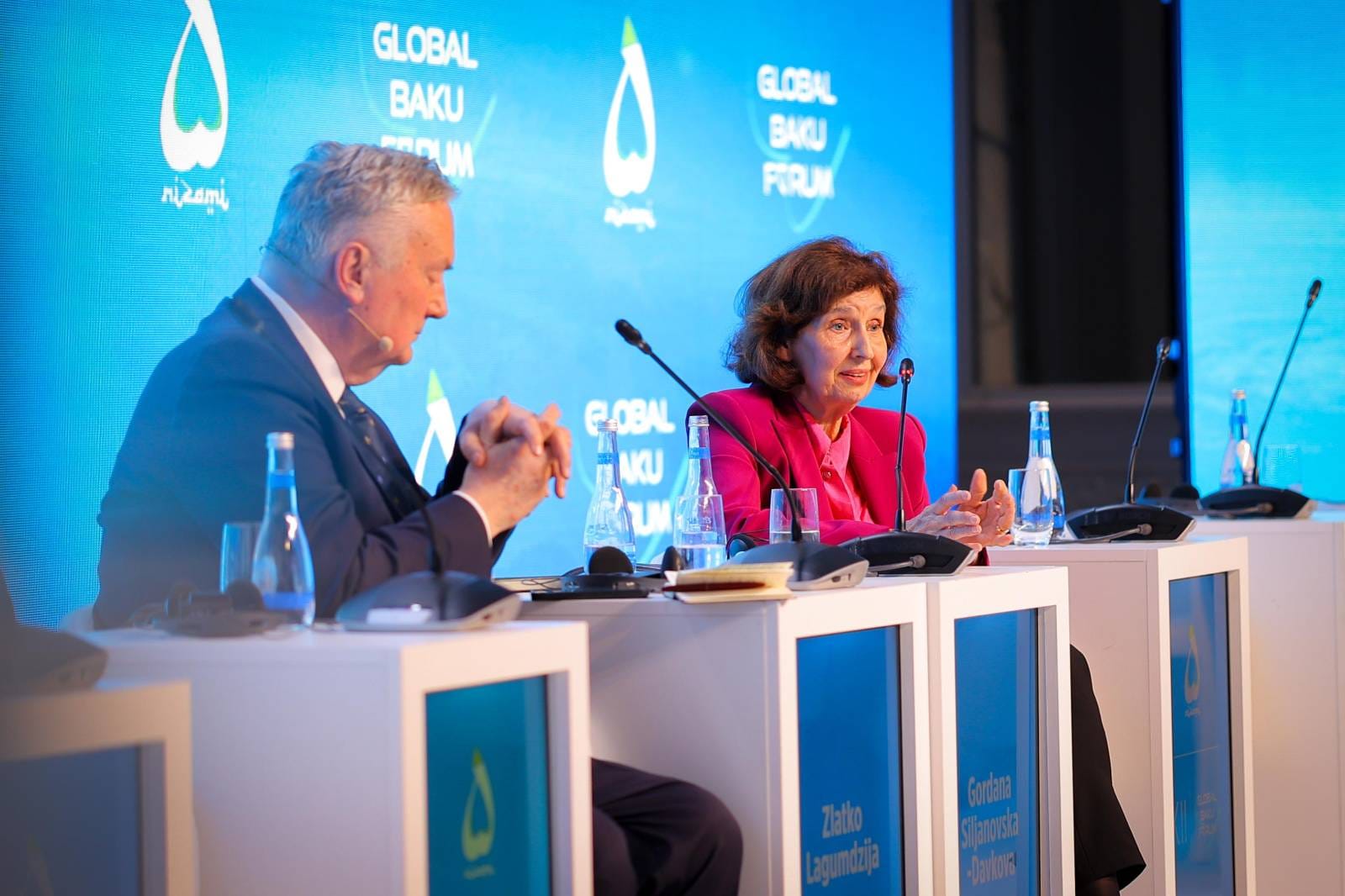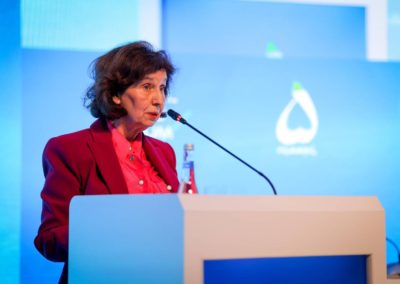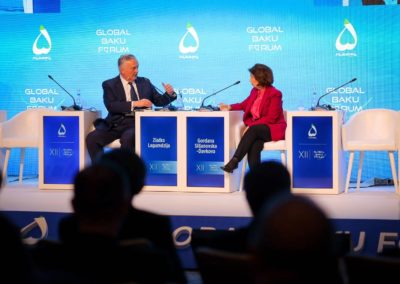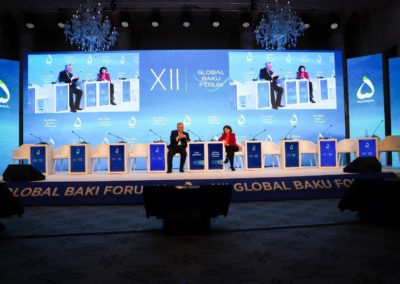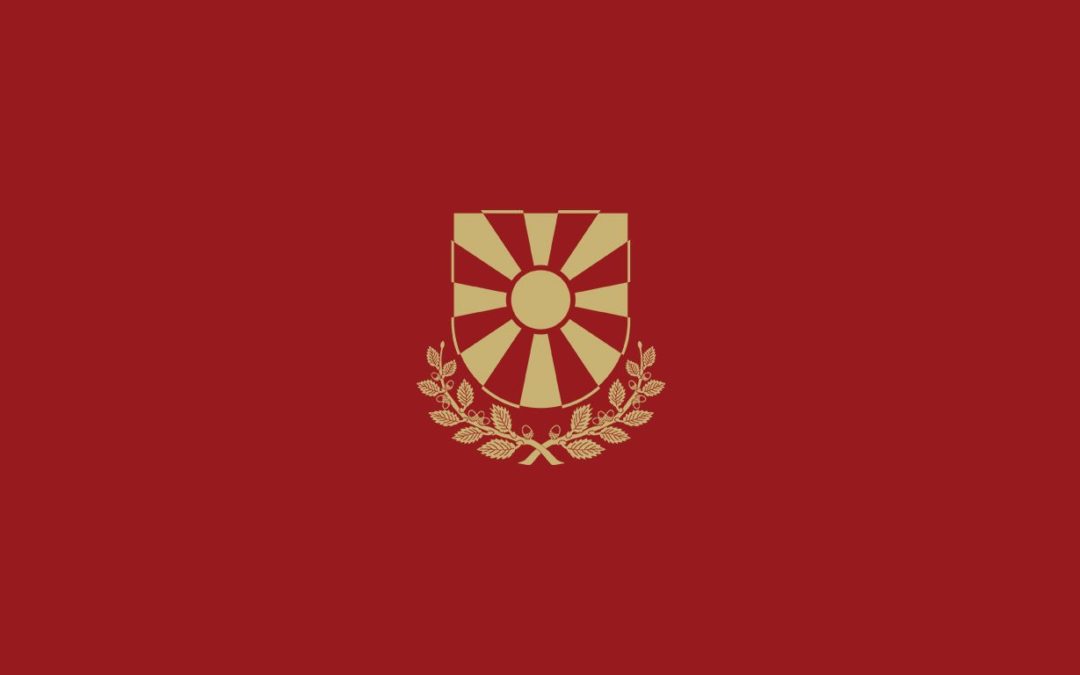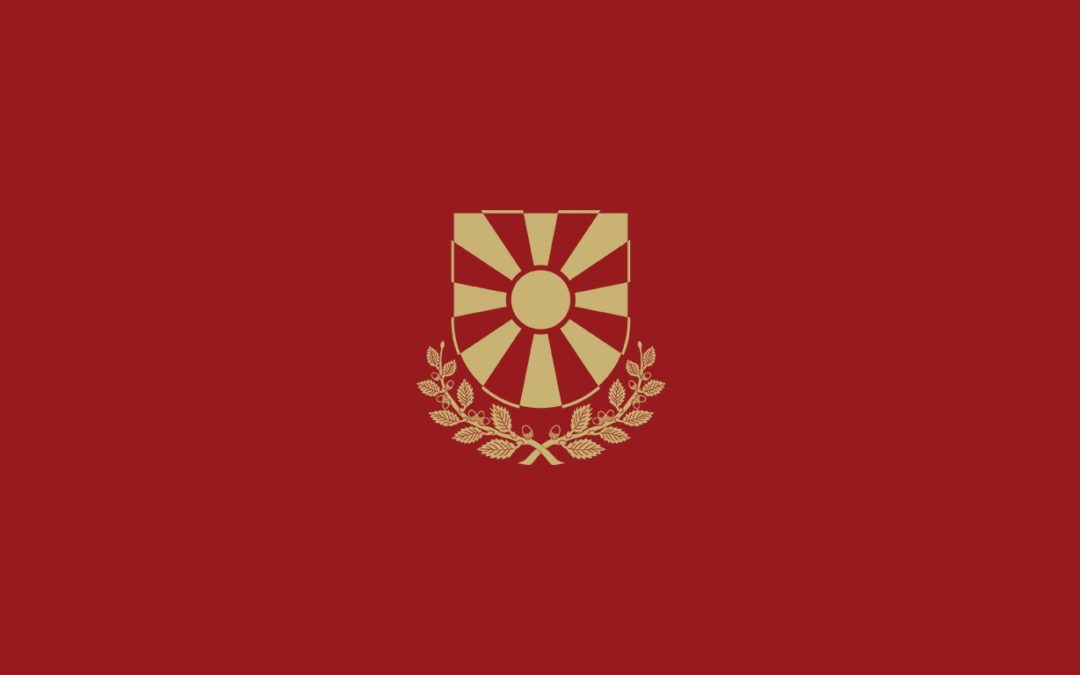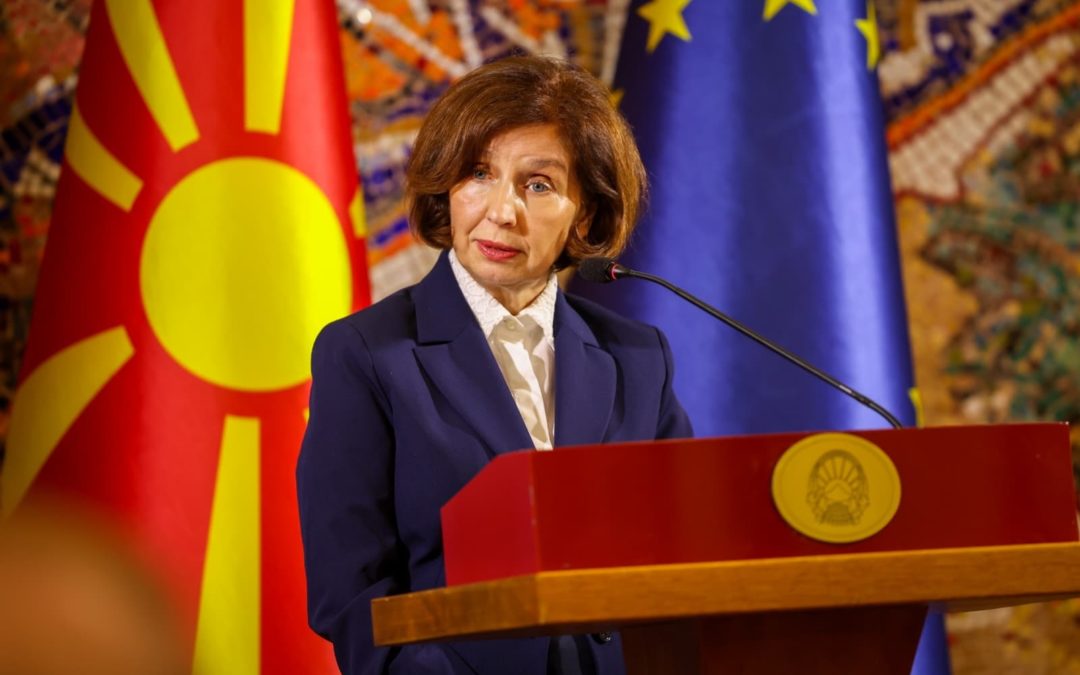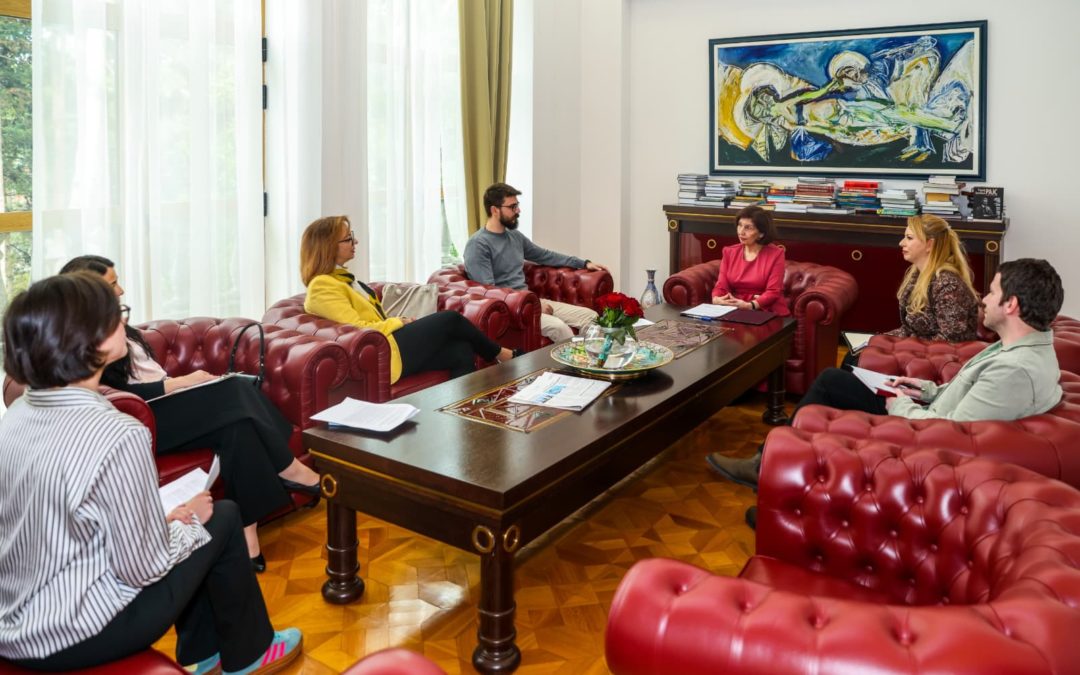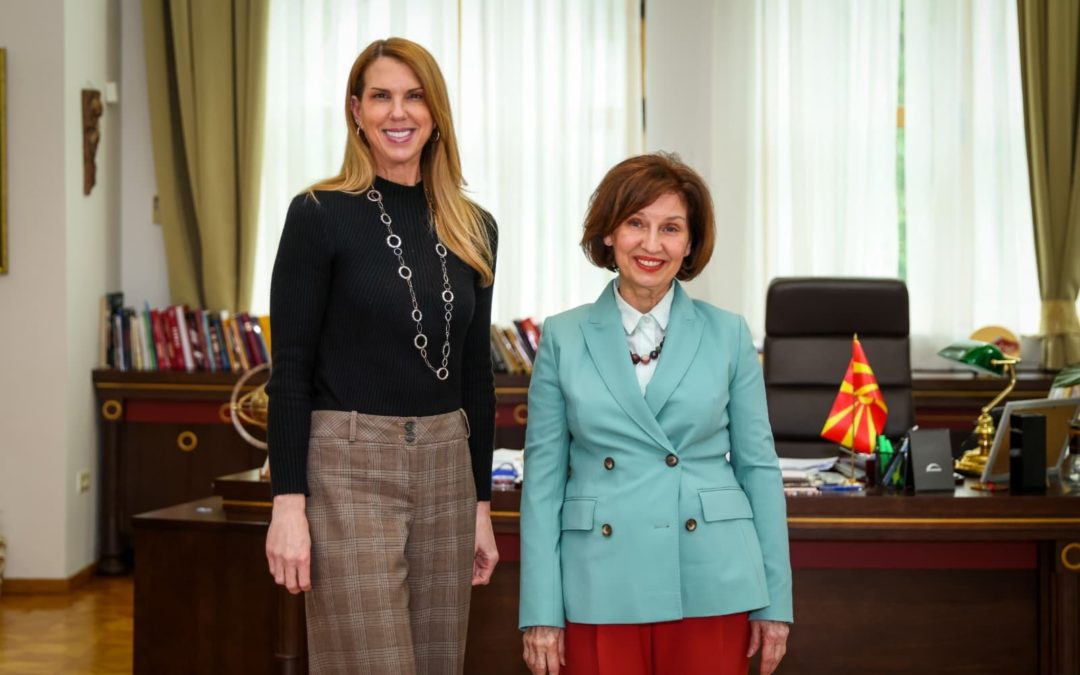President Gordana Siljanovska-Davkova addressed the XII Global Baku Forum today, namely the session on “The United Nations Pact for the Future: Building a New Global Consensus”.
She called for substantial reforms that would make global institutions more legitimate, fairer, more effective and more consistent in fulfilling the Charter of the United Nations. At the same time, she stressed that although outdated, the United Nations is still the only organization that, in addition to universal legitimacy, has the potential to address problems.
In her address, she reaffirmed membership in the European Union as a strategic goal of the country. She also pointed out that we are not deviating from our strategic partnership with the US.
She called for a clear integration path, based on principles and rules.
Below is the full text of President Siljanovska-Davkova’s address.
Esteemed Excellencies,
Ladies and Gentlemen,
I thank our hosts of the Nizami Ganjavi International Center for the kind invitation to participate in the 12th Global Baku Forum.
This Global Baku Forum is taking place in-between the anniversaries of two important conferences. February marked the 80th anniversary of the Yalta Conference, which outlined the contours of the international order after World War II. April will mark the 80th anniversary of the San Francisco Conference, which formally established the order with the United Nations at its core.
80 years later, it is still difficult to imagine a world without the United Nations. But it is almost impossible to imagine the creation of the United Nations in 2025 according to the ambitious goals of 1945.
Why is that?
The world organization was designed for an era that is long behind us, with lesser complexity and greater predictability in international relations.
Since then, the world has undergone a major geopolitical, geoeconomic, scientific, technological and industrial transformation. The number of member states and the world population has grown, globalization has deepened and challenges have multiplied. However, the competencies, structures and procedures of the United Nations have remained largely frozen in place at the time of its founding. Many opportunities for necessary reforms have been missed. The outdated multilateral instruments of the United Nations can no longer respond to today’s geopolitical, economic, environmental, demographic and technological challenges.
Rarely have we needed the United Nations as much as we do today. And yet, rarely has the United Nations been as politically marginalized as it is today.
To correct some of the shortcomings, we gathered in New York last September at the Future Summit to adopt the Pact for the Future. The Pact, together with the Global Digital Compact and the Declaration on Future Generations, offered a vision of multilateralism that could more inclusively and fairly meet the three overarching goals of the United Nations- peace and security, human rights and sustainable development.
But even before it was adopted, the Pact faced the dual criticisms of too little and too much expectation.
On the one hand, some idealists argued that the Pact was not strong enough to be the elixir that would rejuvenate our 80-year-old organization.
On the other hand, some realists saw the Pact as just another desperate attempt to salvage the post-World War II order, the ruins of which lie all around us. Instead of multilateralism, there is multi-polarization and growing geopolitical rivalry. International law has been eroded by double standards. New conflicts over resources, water, energy and rare minerals are flaring up. The battle with nature seems to have been lost in advance. International relations have become unpredictable. Instead of Kant’s eternal peace, which some of the authors of the United Nations Charter dreamed of, we seem to be in a pre-Hobbesian state.
Notwithstanding the criticism, the Pact was adopted as a carefully constructed global consensus over two things.
First, although outdated, the United Nations is still the only organization that, in addition to universal legitimacy, has accrued experience, knowledge and potential to address problems, mobilize the global public, coordinate policy-making and decision-making processes and assist in their implementation.
Second, substantial reforms are necessary that will make global institutions more legitimate, fairer, more effective and more consistent in fulfilling the United Nations Charter. The Security Council should be expanded, reformed and democratized to make it more accountable and responsible in maintaining international peace and security. The General Assembly should take its rightful place as the principal representative body not only for debate but also for policy-making. The judgments of the International Court of Justice must become binding on all. Only in this way will the United Nations be able to respond to the current geopolitical, economic, environmental, climate, technological and demographic challenges.
The Pact for the Future is a kind of global social contract, a new Rousseauian contract, which should strengthen the multilateral system with the United Nations at its core.
But, even during its first months, this global social contract has found itself facing a new challenge. The question that many are now asking is not whether the Pact for the Future will succeed, but whether it will even survive 2025. Will it survive in the new geopolitical circumstances, and if so, will it be a reference point for the renewal of the United Nations, or will it be reduced to yet another ambitious but overdue document gathering dust in the East River archives?
That depends on two things.
First, will the states uphold their commitments. And, second, will they abandon double standards. Why double standards? Because they are the Achilles heel of multilateralism. The selective, rather than universal, application of international rules and principles calls into question the universality of the principles themselves.
With just one illustration, I will refer to my continent and my country.
What the United Nations is to the world, the European Union is to Europe – a multilateral project with one ultimate goal – peace on the continent. It achieves this through the policy of enlargement with new member states that meet the Copenhagen criteria. As the embodiment of multilateralism, the European Union has an obligation to defend multilateralism impartially and consistently. But my country’s European path is paved with double standards, with emerging demands and new conditions that have not been imposed on other countries.
Recently, at one of the panels at the Munich Security Conference, the Macedonian Prime Minister asked a rhetorical question: why, when Russia denied Ukrainian identity and language, all of Europe stood up for Ukraine, and when a member state of the European Union denied Macedonian identity and the Macedonian language, everyone was silent. The answer of the panel moderator was: “because you are not under attack.” So, we should act “ex ante” instead of “post festum”.
To be honest, they are not silent, but rather demand that we accept the unfair conditions and negotiate for our national identity, our language, our culture, history, and even our constitutional order.
As a small country, we do not deviate from our strategic goal – membership in the European Union. After all, we are a natural part of Europe: geographically, historically, culturally. If we are an integral part of Europe and if we perceive ourselves as Europeans, then European reunification cannot be completed without us. We are not abandoning our strategic partnership with the United States either, because, despite the current turmoil, we believe in the importance of effective transatlanticism, based on international rules and principles. But we are also aware that always, before physical borders are violated, principles and values are violated. Double standards generate precedents that grow into rules. And when compromises are made with international rules and principles and with international law, the United Nations is compromised, the Charter is devalued, and the international order is undermined.
So, let’s go back to the question: Will the Pact for the Future survive the year of 2025?
This is not the first time we have been in this situation. The generation that founded the UN 80 years ago also struggled with doubts and fears that their great multilateral experiment would suffer the fate of the League of Nations. And yet, they did not give up and established the Organization. Likewise, we are torn between the longing for Kant’s eternal peace and the real danger of Hobbes’s war of every man against every man. And, instead of becoming naive idealists or cruel Machiavellians, we should hold this global consensus with realistic hope.
I say this as the President of a country that has felt the burden of double standards, of broken agreements, of unfulfilled promises many times. The small states should be the loudest and biggest supporters of this pact.
What will the future bring if we miss this opportunity? Would there be divided, instead of United Nations, reduced to a relic of the past, blocked by the veto and paralyzed by numerous crises and challenges? Would there be a division of the world into zones of influence and interests, parallel orders that gravitate around different geopolitical centers, each with its own system of values, rules and principles, each with its own yardstick for human rights and freedoms. Would we live in a world without universal values and without awareness and concern for global goods and the future of the unborn? That is, indeed, something we cannot afford.
Thank you.
